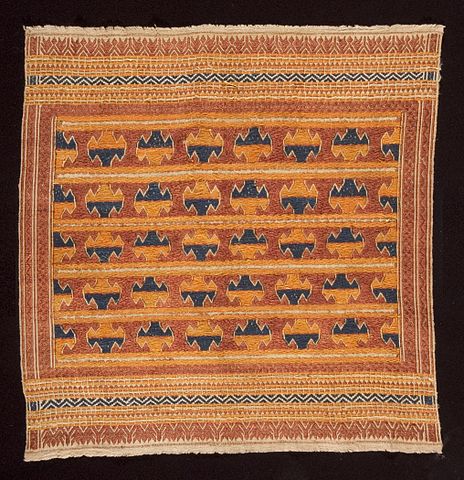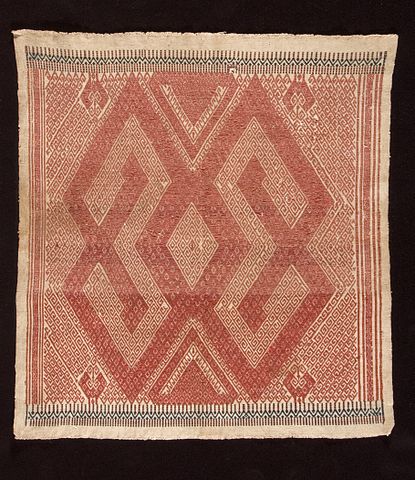
Through the generosity of the late Professor Benedict Anderson and Ajarn Charnvit Kasetsiri, the Thammasat University Library has acquired some important books of interest for students of Association of Southeast Asian Nations (ASEAN) studies, political science, literature, and related fields.
They are part of a special bequest of over 2800 books from the personal scholarly library of Professor Benedict Anderson at Cornell University, in addition to the previous donation of books from the library of Professor Anderson at his home in Bangkok. These items are shelved in the Charnvit Kasetsiri Room of the Pridi Banomyong Library, Tha Prachan campus.
In addition to Professor Anderson’s generous bequest, his renowned books are also in the TU Library collection.
These include his A Life Beyond Boundaries, a memoir offering some background information about how his historical research changed perceptions about Southeast Asia.
Professor Anderson was most celebrated for his book Imagined Communities: Reflections on the Origin and Spread of Nationalism, in which he found some value in nationalism.
A Life Beyond Boundaries makes it clear that his research achievements were due to his dedication to learning languages in Indonesia, Thailand and the Philippines.
He started to learn Thai language relatively late in life, but made advances with his typical diligence and inspiration. At different times, he also studied Latin, Greek, French, German, Russian, Dutch, and Spanish.
A Life Beyond Boundaries is unusual as a memoir, as TU students will note if they compare it to other autobiographies owned by the TU Library.
The noun autobiography derives from Ancient Greek terms meaning self, life, and to write. So to write one’s own life oneself is to be an autobiographer.
A Life Beyond Boundaries was specifically written for Japanese students to read, and in certain sections resembles a public lecture rather than a more private statement.
One of the striking aspects of Professor Anderson’s account is how he became involved in Southeast Asian studies seemingly by accident, when a paid job became available at a time of unemployment.

Professor Anderson mentions his intellectual involvements, such as a study of 19th-century anarchism and an essay about the Thai film director Apichatpong Weerasethakul. He is also clear about the importance of libraries in his life and work. He writes:
When I arrived at Cornell in 1958 I had to learn in a hurry how to type my seminar papers, with four fingers, on a manual typewriter. For distribution to other students, we typed on a kind of green gelatin paper, which allowed us to erase small errors with white paint, and then run off the corrected final text on a simple mimeograph machine. Changing anything was a slow and painful matter, so we had to think carefully before typing. Often we worked from long-hand drafts. Today, working on a computer, we can change anything and move anything in a matter of seconds. The decline in sheer pain is a blessing, but it is worth remembering that the pearl is produced by an oyster in pain, not a happy oyster with a laptop. I am not sure that today’s seminar papers show any stylistic improvement over the products of forty years ago.
In those days libraries were still sacred places. One went into the ‘stacks’, dusted off the old books one needed to read, treasured their covers, sniffed their bindings, and smiled by their sometimes strange, outdated spellings. Then came the best part, randomly lifting out books on the same shelf out of pure curiosity, and finding the most unexpected things. We were informally trained how to think about sources, how to evaluate them, compare them, dismiss them, enjoy them. Chance was built into the learning process. Surprise too.
Today, libraries are trying monomaniacally to digitalize everything, perhaps in the expectation that eventually books will become obsolete. Everything will be findable ‘online ’. Randomness is perhaps disappearing, along with luck. Google is an extraordinary ‘research engine ’, says Google, without irony in its use of the word ‘engine ’, which in Old English meant ‘trickery’ (as is reflected in the verb ‘to engineer’) or even ‘an engine of torture ’. Neither Google nor the students who trust it realize that late- nineteenth-century books feel this way in one’s hands, while early-twentieth-century books feel that way. Japanese books are bound one way, Burmese books another. Online, everything is to become a democratically egalitarian ‘entry’. There is no surprise, no affection, no scepticism. The faith students have in Google is almost religious. Critical evaluation of Google? We do not yet teach it. Many students have no idea that even though Google ‘makes everything available ’, it works according to a program.
Nationalism and globalization do have the tendency to circumscribe our outlook and simplify matters. This is why what is increasingly needed is a sophisticated and serious blending of the emancipatory possibilities of both nationalism and internationalism. Hence, in the spirit of Walt Kelly as well as Karl Marx in a good mood, I suggest the following slogan for young scholars:
Frogs in their fight for emancipation will only lose by crouching in their murky coconut half-shells. Frogs of the world unite!”
The posterity of Professor Anderson’s research is not in doubt. In August 2011, Time Magazine proclaimed Imagined Communities one of the 100 best and most influential books written in English since 1923:
One of the most important meditations on what it means to live in a modern nation, Benedict Anderson’s 1983 Imagined Communities explores how often far-flung, disparate sets of people willingly embraced new national identities in the 20th century. Anderson, a British historian and professor at Cornell, details the means by which we come to think of the modern nation-state as “a deep [egalitarian] comradeship” despite the fact that social and economic inequalities remain, often as bad as in earlier ages of sovereign kings and monarchies. The short explanation involves the tools of the modern capitalist world, media in particular. The first wave of national newspapers, for example, provided a kind of “extraordinary mass ceremony” in which countless people in towns and farmhouses consumed the same information at the same time. Imagined Communities remains the most clear-eyed tract on how people came to see themselves as “national” beings, an identity that Anderson and scholars since have shown relies on far greater fictions than truths. Of course, it’d be interesting to hear what Anderson might say now about what’s happening to the idea of the nation in the far more fragmented age of globalization and the Internet.
In addition, A Life Beyond Boundaries inspired respectful and sympathetic reviews for its modest tone and focus on intellectual matters, reflecting his personality. TU students might note how in his younger years, Professor Anderson enjoyed listening to radio adaptations of classic novels such as Anna Karenina, The Count of Monte Cristo, Lord Jim, and Tess of the D’Urbervilles. He was also fond of theater, especially plays by Shakespeare, Shaw, Wilde, Sheridan, and O’Casey. TU students have the privilege of being able to read some of these authors in editions once owned by Professor Anderson himself. Other titles are likewise available in the TU Library collection to encourage and inspire future generations of researchers.

(All images courtesy of Wikimedia Commons)
